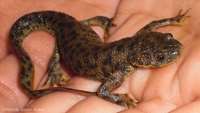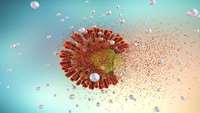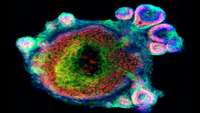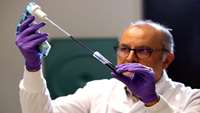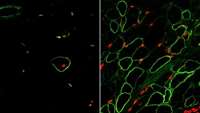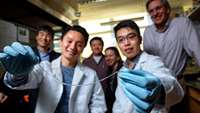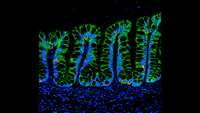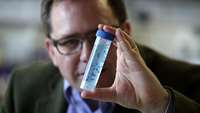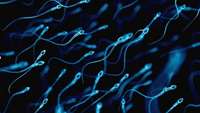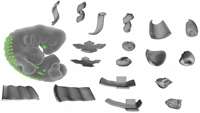Salamander genome gives clues about unique regenerative ability
Researchers at Karolinska Institutet have managed to sequence the giant genome of a salamander, the Iberian ribbed newt, which is a full six times greater than the human genome.
CAR T-Cell Therapy Shows Potential to Fight HIV
Researchers have turned to gene therapy in an effort to destroy HIV infected cells in the body, and also create long-term immunity from the disease over the long haul.
In scientific first, IU researchers grow hairy skin in a dish
Researchers at Indiana University School of Medicine have successfully developed a method to grow hairy skin from mouse pluripotent stem cells a discovery that could lead to new approaches to model disease and new therapies for the treatment of skin disorders and cancers.
How alcohol damages stem cell DNA and increases cancer risk
Drinking alcohol produces a harmful chemical in the body which can lead to permanent genetic damage in the DNA of stem cells, increasing the risk of cancer developing, according to new research.
UCLA researchers create skeletal muscle from stem cells
UCLA scientists have developed a new strategy to efficiently isolate, mature and transplant skeletal muscle cells created from human pluripotent stem cells, which can produce all cell types of the body. The findings are a major step towards developing a stem cell replacement therapy for muscle diseases including Duchenne Muscular Dystrophy, which affects approximately 1 in 5,000 boys in the U.S. and is the most common fatal childhood genetic disease.
Removable implant may control type 1 diabetes
For the more than 1 million Americans who live with type 1 diabetes, daily insulin injections are literally a matter of life and death. And while there is no cure, a Cornell-led research team has developed a device that could revolutionize management of the disease.
Synthetic Hydrogels Deliver Cells to Repair Intestinal Injuries
By combining engineered polymeric materials known as hydrogels with complex intestinal tissue known as organoids – made from human pluripotent stem cells – researchers have taken an important step toward creating a new technology for controlling the growth of these organoids and using them for treating wounds in the gut that can be caused by disorders such as inflammatory bowel disease (IBD).
Encapsulated human cells to revolutionise cell research
Atelerix, a spin-out from Newcastle University, is offering the transformative hydrogel technology for the storage and transport of viable cells including stem cells and cell-based assays at ambient temperatures. This overcomes the barriers presented by the current need for cryo-shipping as it is simple, cell-friendly and offers immediate access to stem cell therapy.
Researchers use sperm to deliver cancer drugs to tumors
Chemotherapy has a lot of terrible side effects and thats partly because the drugs being used to fight cancer also attack healthy cells. Figuring out a way to deliver drugs to tumors without affecting healthy tissue is a challenge and a problem that researchers are trying to solve.
Bioengineers Found a Way to Create 3D Shapes From Living Tissue
Bioengineers from the University of California, San Fransisco (UCSF) have figured out how to create bowls, coils, and ripples out of actual, living tissue. The researchers manipulated active cells from both mice and humans into folding themselves in ways that occur during natural development.


